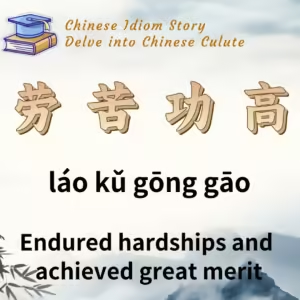
Chinese Idiom: 鼎足之势 (Ding Zu Zhi Shi)
English Translation: The Triangular Stance
pīn yīn: dǐng zú zhī shì
Idiom Meaning: It describes a situation where three parties stand firm and balance each other, preventing any from taking action against the others.
Historical Source: Records of the Grand Historian (Shiji), specifically the biography of Han Xin.
Idiom Story:
In 203 BC, the struggle between the Chu and Han dynasties had entered its fourth year. Han Xin, utilizing the strategy devised by Kuai Tong, defeated the army of Qi and subsequently repelled the 200,000 reinforcements sent by Xiang Yu, killing the Chu general Long Qie. Following this, Xiang Yu sent Wu She to persuade Han Xin to turn against Liu Bang, but this attempt failed.
Later, Kuai Tong pretended to use fortune-telling methods to persuade Han Xin. He explained that the contest between Liu Bang and Xiang Yu was at a stalemate, with both sides exhausted. He then delivered this insightful analysis:
“The fates of the two leaders now hang in your hands. If you support Liu Bang, he will win; if you assist Xiang Yu, he will triumph. I wish to lay bare my heart and share my foolish ideas, but I fear they may go unheeded. If you can accept my advice, it would be best to let both Liu and Xiang coexist, thus dividing the world into three parts and standing firmly against each other. In this way, no one would dare to act rashly.
With your wisdom and numerous troops, you can occupy the strong state of Qi. By aligning with Yan and Zhao, you can launch attacks from their vulnerable regions and control their rear while responding to the people’s will. By moving westward to mediate between Liu and Xiang, the people will rally behind you, and who would dare to disobey?”
In the end, Han Xin chose not to betray righteousness for personal gain.
As a result of this story, the phrase “三分天下,鼎足而居” (three divisions of the world, standing in a triangular stance) was later simplified and evolved into the idiom “鼎足之势.”






